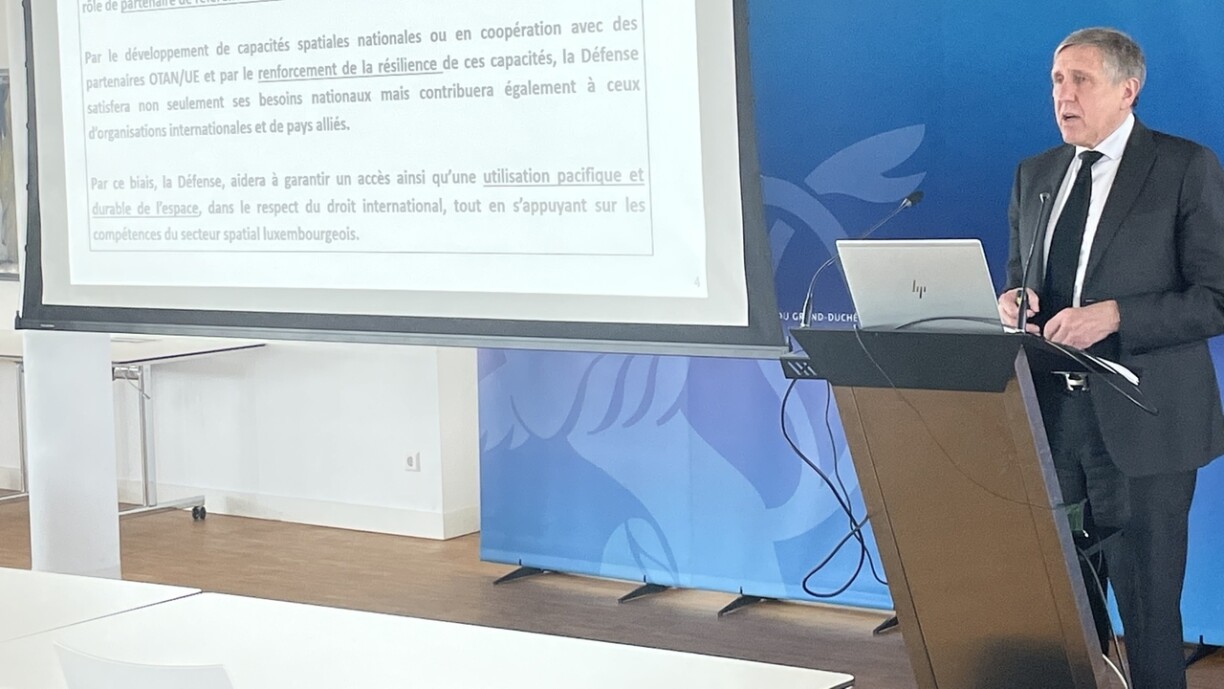
This represents a military domain where our small country can become an important player, explained Minister Bausch during the presentation. Due to the increasing dependance on functioning satellites, the strategy envisions to increase security in terms of cyber attacks, accidents provoked by space debris, and asteroid impacts.
Minister Bausch stated: “We will also construct a monitoring platform with radars and telescopes here on Earth, which should be able to identify space debris and estimate potential impact risks. Furthermore, there will be a ‘cleaning’ programme with a satellite picking up debris with a net, similar to the ways in which plastic can be recovered from the ocean. We hope that this will prevent accidents and damages to space infrastructure.”
The Minister of Defence also underlined that Luxembourg has gained a lot of experience in space, most notably in its role as EU and NATO partner. Even though the military alliance requires that members commit at least 2% of their GDP for defence purposes, Luxembourg is currently only at 0.72%.
Steve Thull, general of the Luxembourg Army, was also present and provided insight into how expanded space defence helps create new jobs and makes the military more attractive: “It is a new domaine that only entered the Army a couple of years ago. It allows us to recruit an entirely new group of people, which is a good thing.”
Officials at the presentation also drew attention to the fact that national satellites can be used for military purposes, as the war in Ukraine shows.
Minister Bausch further announced that NATO has filed an application with the Luxembourg government to use the national satellite GovSat to ensure there is a guaranteed means of communication in Ukraine. Even though it is not yet clear how this mission will play out, Minister Bausch expressed his willingness to provide support.